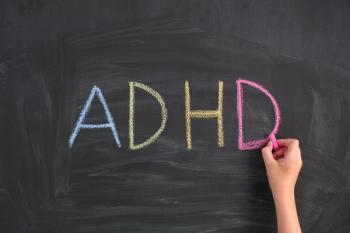
What you need to be doing about oral health
A new poll shows that there is a lot of misunderstanding about when is the right time for children to start seeing a dentist.
In some cases, pediatricians don’t offer education about children’s oral health. In others, parents might not take it. Either way, parents who aren’t prompted by their pediatrician or other health professional don’t get their children the early dental care they need.
Both the
“For many families, the pediatrician is key to making sure parents understand the importance of early dentist visits, but this study shows that over half of parents don’t recall any recommendation from the pediatrician,” says Sarah J. Clark, MPH, associate research scientist for the Department of Pediatrics at the University of Michigan’s Child Health Evaluation and Research Center (CHEAR) and co-director of the C.S. Mott Children’s Hospital National Poll on Children’s Health. “Pediatrician guidance is particularly important because many parents don’t make routine dental visits themselves, so they are not in a position to get that information and guidance from the dentist.”
Clark says early dental care is important for establishing good dental health, and for early detection and treatment of tooth decay in children. However, there seem to be pockets of parents who are not receiving education about dental care.
According to the poll, 45% of parents reported receiving information from their child’s dentist or doctor about initiating regular dental visits, but parents in this group were typically from higher income and education brackets with private dental insurance. This divide is concerning, according to the poll researchers.
Tooth decay occurs in up to 40% of children by the time they reach kindergarten, according to the AAP, and poll researchers note that dental caries occur at higher rates in low-income populations. Many
Whereas state programs are mandated to cover dental care for children, parents may not receive coverage or have restrictions in place in order to receive care. Poor dental health can not only affect an individual’s appearance and oral health, but it can also lead to infection and a host of other health problems. For these reasons, it’s important to educate all patients, particularly in cases in which parents also may not be receiving the dental care or education they need.
The poll also notes, however, that even when education is offered, parents might get outdated information or misunderstand the recommendations given to them.
Among parents who say they did receive education from a pediatrician or other physician about dental care, 47% reported that they believed children should first see a dentist at age 1 year or younger; another 47% thought the first dental visit should be between ages 2 and 3 years; and 6% of parents who received education from a provider thought dental visits should be delayed until age 4 years or later.
In comparison, among parents who received no education or information on dental care from a healthcare provider, just 35% believed dental visits should begin at age 1 year or younger; 48% reported dental care should begin between ages 2 and 3 years; and 17% stated that dental care should begin at age 4 years or older.
As far as overall compliance with dental care, 60% of the parents polled had taken their child for a dental visit, and the age at which they first took their child to the dentist matched the parents’ belief about when to start dental care 85% of the time. Nearly 80% of parents reported feeling that their child’s dental visit was worthwhile.
For the 40% of parents polled who had not ever taken their child to the dentist, researchers investigated why. Forty-two percent of parents who had not taken their child to the dentist believed that the child was not yet old enough; 25% believed their child’s teeth were healthy; and 15% felt their child would be afraid of the dentist.
In a statement about the poll results, researchers say that parents’ lack of awareness of dental care recommendations is understandable, considering how much guidelines have changed over the years. “Parents get much less guidance on when their child should go to the dentist compared to the doctor,” the statement continues.
Well visits for children begin immediately after birth, and the first few years of a child’s life are filled with scheduled assessments and vaccinations. Parents can easily become overwhelmed with all the information they receive at these visits, or physicians may run out of time to discuss dental care.
“A likely barrier is the time crunch to include all recommended elements of anticipatory guidance at well-child visits in the second year of life (ages 12, 15, and 18 months),” Clark says. “A related barrier is the challenge that parents have remembering all that advice-so a handout or ‘prescription’ to make a dentist appointment might be helpful.”
Clark says this poll is a good reminder to pediatricians to discuss dental care and to find new ways to educate parents.
“This is a great reminder for pediatricians that guidance to parents makes a difference,” Clark adds. “We don’t assume that parents know when to seek well-child visits and other aspects of preventive care-we guide them; the same is true for dental care. I hope this research encourages pediatricians to communicate clearly about the importance of early dental visits.”
Newsletter
Access practical, evidence-based guidance to support better care for our youngest patients. Join our email list for the latest clinical updates.






